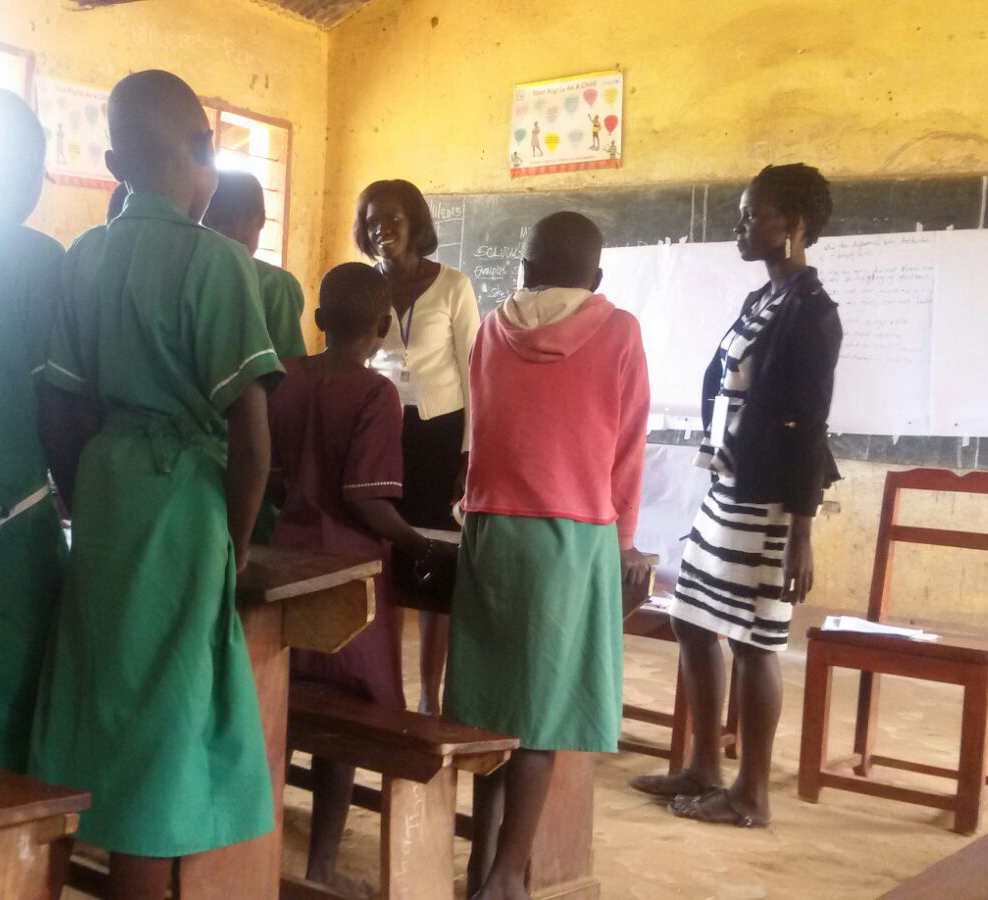Evaluation of the Transformative Potential of Positive Gender Socialization in Education for Peace Building in Uganda
 Post-conflict regions are often characterized by a weakness in resilience, social cohesion, and human security, which may be reinforced by gender inequality. Uganda’s Karamoja region lacks an organized approach to positive models of masculinity and femininity in schools and open discussion about masculine and feminine roles. The continued absence of these elements of positive gender socialization can serve to perpetuate inequality, inevitably confining women to traditional gender roles. Women constitute the largest proportion of out-of-school youth in Uganda, and their limited educational opportunities render them unable to contribute to this aspect of the peace-building process, which in turn may further delay progress in peace-building.
Post-conflict regions are often characterized by a weakness in resilience, social cohesion, and human security, which may be reinforced by gender inequality. Uganda’s Karamoja region lacks an organized approach to positive models of masculinity and femininity in schools and open discussion about masculine and feminine roles. The continued absence of these elements of positive gender socialization can serve to perpetuate inequality, inevitably confining women to traditional gender roles. Women constitute the largest proportion of out-of-school youth in Uganda, and their limited educational opportunities render them unable to contribute to this aspect of the peace-building process, which in turn may further delay progress in peace-building.
In an effort to reduce gender inequality, UNICEF and the Ministry of Education and Sports (MoES) implemented a program to encourage gender equality and positive gender socialization in primary schools. The program includes several trainings in gender, identity, and peace-building to build teachers’ capacity as agents of change to foster a change in gender social norms in schools. In addition, a subset of trained teachers receives reinforcing text messages through a mobile Short Message Service (SMS) platform. This program is being implemented in five districts within Karamoja region.
The Impact Evaluation
AIR and its Ugandan research partners are conducting a mixed-method cluster-randomized control trial to evaluate the impact of the UNICEF and the MoES teacher training program in Karamoja. The impact evaluation assesses the effects of the program on teachers’ knowledge, attitudes, and practices related to gender equality, positive gender socialization, and conflict in schools. The quantitative component of the study uses a culturally validated teacher survey to respond to efficacy questions about the program. The qualitative component uses interviews with key stakeholders, focus groups with teachers and students, and case studies to elaborate on quantitative impact findings and to better understand teacher experiences implementing the program in the classroom, school, and community.
Baseline data validated the study design used in the impact evaluation, indicating that the randomization process worked successfully in terms of creating equivalent groups before the program started. It also revealed valuable information about the starting point of all participants in the sample. The results of baseline and midline data collection has helped UNICEF adapt their programming to try to more effectively incorporate contextual factors, and address some of the challenges that teachers were encountering in schools. The team has collected endline data and is currently conducting quantitative and qualitative analyses to understand program impacts.
Report and Key Findings
- Positive evidence showed that the program succeeded in increasing teachers’ knowledge of and attitudes towards gender equality issues in the short term.
- Limited evidence was found to demonstrate that the program influenced overall teacher practices (at least in the short term).
- Limited evidence was found for positive complementary effects of the text message component on teachers’ knowledge, attitudes, and practices.
The report also includes detailed findings and recommendations of the program’s Ugandan context and its objectives and content, and the methods and limitations of the present study.
